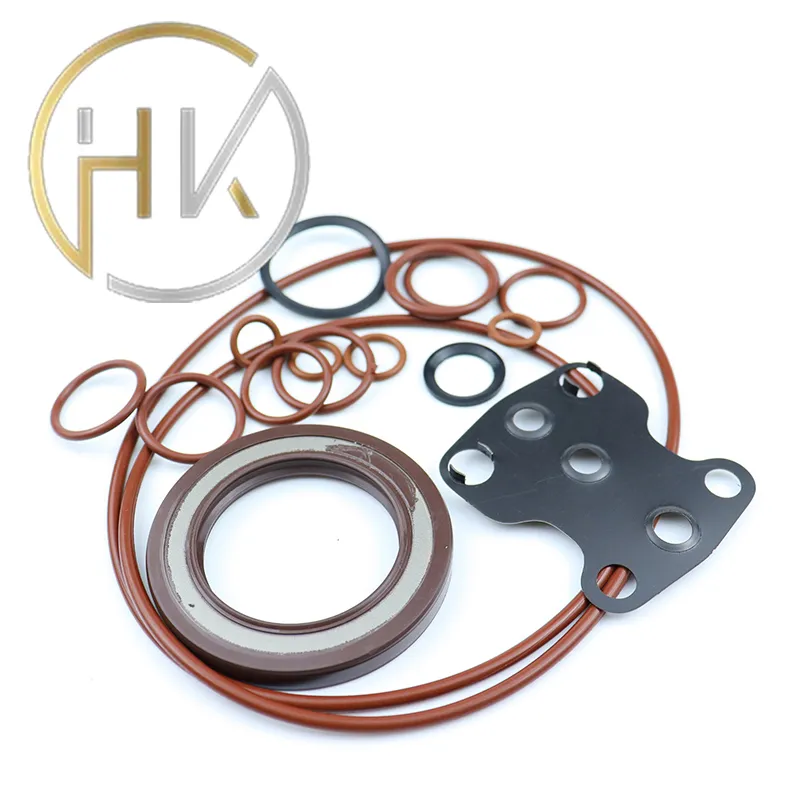11 月 . 01, 2024 11:32 Back to list
Understanding the Functionality and Design of Single Acting Piston Seals in Systems
Understanding Single Acting Piston Seals A Key Component in Hydraulic Systems
Single acting piston seals are crucial components in hydraulic systems, providing effective sealing for a wide range of applications. These seals play a vital role in optimizing performance, enhancing efficiency, and preventing leakage, thereby ensuring the reliability of machinery and equipment.
A single acting piston seal functions by sealing the hydraulic cylinder on one side of the piston, allowing fluid to exert pressure in a single direction. This design makes these seals particularly effective in applications where hydraulic power is required during one direction of movement, such as in hydraulic cylinders for cranes, excavators, and injection molding machines.
Design and Materials
Single acting piston seals are typically constructed from durable materials such as polyurethane, nitrile rubber (NBR), or fluoropolymer compounds. The choice of material depends on the specific requirements of the application, including temperature, pressure, and fluid compatibility. The design of these seals often involves a lip configuration that securely grips the piston while allowing for the necessary movement. The lip's design is crucial, as it must provide a tight seal under pressure while minimizing friction that could hinder piston movement.
Working Principle
The operation of a single acting piston seal is straightforward. When hydraulic fluid is pumped into the cylinder, it pushes the piston forward against the seal. The seal creates a tight barrier, preventing fluid from leaking past the piston and ensuring that the force generated by the fluid is efficiently transmitted. When the pressure is released, the seal retracts, allowing the fluid to return, but remains effective in preventing backflow, maintaining system integrity.
single acting piston seal

Advantages
One of the primary advantages of single acting piston seals is their simplicity and effectiveness in one-directional applications. They are relatively easy to install and maintain, leading to reduced downtime for machinery. Moreover, their robust design helps withstand high pressures, making them suitable for demanding industrial environments.
Challenges
However, like any mechanical component, single acting piston seals face challenges. Wear and tear over time can lead to degradation, which might result in leaks. Consequently, regular maintenance and inspection of the seals are essential to avoid potential system failures. Additionally, selecting the wrong material for a specific application can lead to premature failure, highlighting the importance of understanding the operational environment and selecting the right seal accordingly.
Conclusion
In conclusion, single acting piston seals serve as a fundamental element in the success of hydraulic systems. Their ability to provide a reliable, efficient seal in one-directional applications makes them indispensable in various industries, from manufacturing to construction. Choosing the right materials and ensuring proper maintenance will prolong their life and enhance the performance of hydraulic machinery. As technology continues to advance, the design and functionality of these seals are expected to evolve, further optimizing hydraulic systems and improving industrial efficiency.
-
The Power of Advanced Sealing: High-Pressure Solutions for Modern Machinery
NewsOct.29,2024
-
Optimizing Machinery with High-Performance Oil Seals
NewsOct.29,2024
-
Maximizing Machinery Efficiency with Advanced Oil Seals
NewsOct.29,2024
-
Ensuring Equipment Longevity with Quality Oil Seals
NewsOct.29,2024
-
Enhance Equipment Performance with Quality Oil Seals
NewsOct.29,2024
-
Custom Oil Seals for Specialized Machinery Needs
NewsOct.29,2024
-
The Role of Wiper Seals in Dust Sealing and Oil Protection
NewsOct.20,2024
Products categories
















